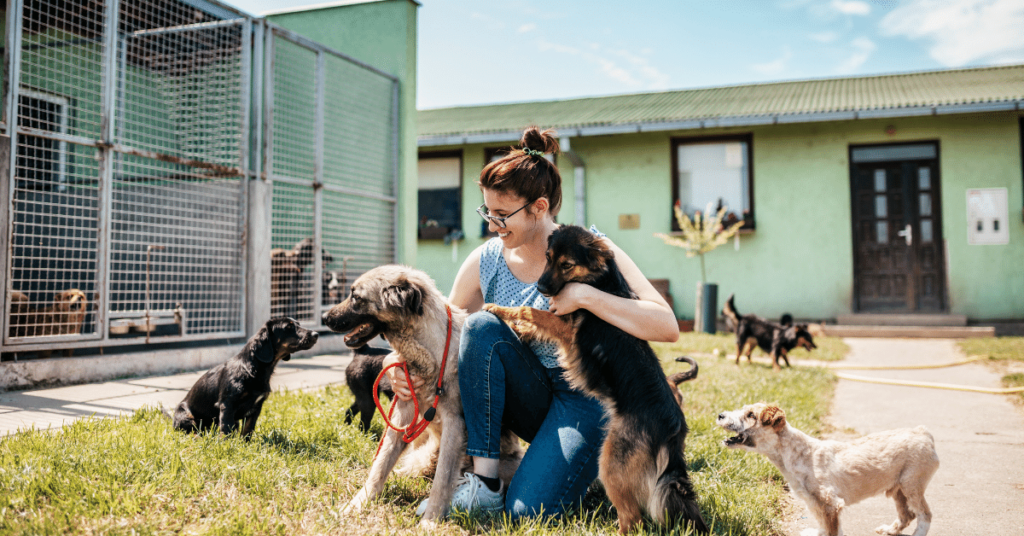Introduction
Adopting a rescue pet can be an incredibly rewarding experience. Not only are you giving an animal a second chance at life, but you’re also gaining a lifelong companion. However, before bringing a rescue pet home, there are several factors that need to be considered. In this article, we will explore what you should think about before adopting a rescue pet.
Research Different Breeds and Species
When considering adoption, it’s crucial to research different breeds and species to determine which one fits your lifestyle the best. Each breed and even each individual animal within a breed may have unique personality traits, exercise needs, and grooming requirements. By understanding the characteristics of different breeds, you can choose a rescue pet that matches your expectations and lifestyle.
Evaluate Your Lifestyle
Before adopting a rescue pet, take a moment to evaluate your lifestyle. Consider factors such as your work schedule, activity level, and living arrangements. Some pets require more time and attention, while others may be more independent. For example, if you work long hours and live in a small apartment, a high-energy dog may not be the best fit. Assessing your lifestyle will help you determine the ideal type of pet that can thrive in your environment.
Financial Considerations
Owning a pet comes with financial responsibilities. While rescue pets typically have lower adoption fees than purebred animals, there are additional costs to consider. Veterinary care, vaccinations, grooming, food, and accessories all contribute to the overall cost of owning a pet. It’s essential to ensure that you can provide for a pet’s needs without causing financial strain on yourself or your family.
Time Commitment
Pets require time and attention, whether it’s for daily walks, playtime, training, or simply providing companionship. Before adopting, consider how much time you can realistically dedicate to a pet. Dogs, for example, require regular exercise and mental stimulation, while cats may need daily playtime and social interaction. Understanding the time commitment involved will help you choose a pet that you can fully commit to.
Existing Pets and Family Members
If you already have pets or family members, it’s important to consider their compatibility with a new rescue pet. Some animals may not get along well with others or have specific requirements. It’s crucial to introduce the potential new pet to your existing ones gradually and ensure they are compatible before making a final decision. Additionally, consider any family members with allergies or sensitivities to pets.
Training and Behavioral Needs
Many rescue pets may have had difficult pasts, and as a result, they may require additional training and behavioral support. Consider whether you have the time and patience to work with a pet who may have behavioral issues or may need extra attention. While many behavior problems can be overcome with time, consistency, and positive reinforcement, it’s essential to be prepared for potential challenges.
Patience and Adaptability
Adopting a rescue pet requires patience and adaptability. These animals may have experienced trauma or neglect, which can affect their behavior and trust. It’s important to understand that it may take time for your new pet to settle into their new home and feel comfortable with you. Being patient, understanding, and adaptable will help you build a successful and loving bond with your rescue pet.
Home Environment and Safety Precautions
Before bringing a rescue pet home, it’s important to prepare your home environment and ensure it is safe for them. Remove any hazardous objects or substances from their reach and create a designated area for them to relax and sleep. It’s also crucial to consider whether your living situation allows for pets, such as checking lease agreements or discussing pet ownership with housemates or family members.
Consider the Long-Term Commitment
Adopting a rescue pet is not a short-term commitment. Most pets live for many years, and you need to be prepared for that level of responsibility. Consider how your life may change in the future, such as starting a family, changing careers, or moving to a different location. Ensure that you are ready to provide consistent love, care, and attention to your pet throughout their lifetime.
Conclusion
Before adopting a rescue pet, it’s important to take the time to consider all aspects of pet ownership. From researching breeds to evaluating your lifestyle and financial capabilities, each factor plays a crucial role in ensuring a successful adoption. By thoroughly considering these important factors, you can make an informed decision and create a loving and fulfilling relationship with your new rescue pet.







